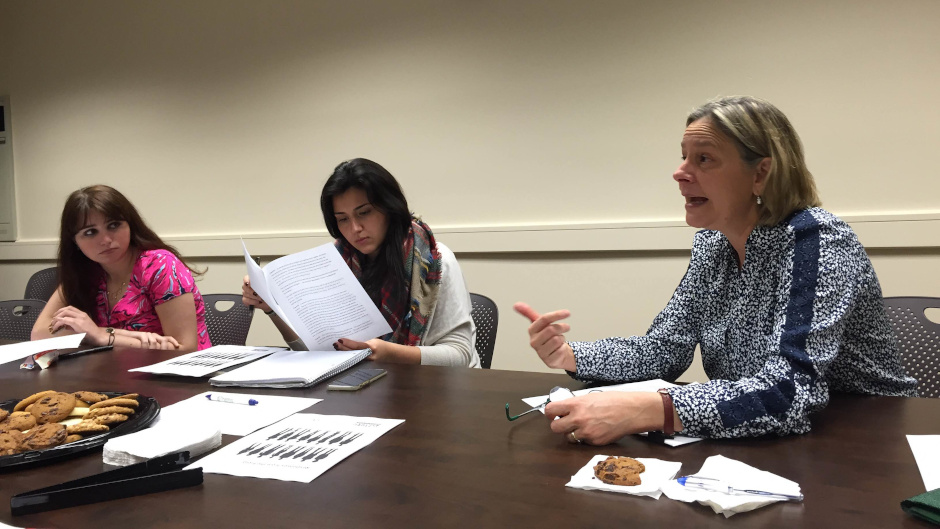The HOPE Public Interest Resource Center, in collaboration with the Public Interest Leadership Board, recently launched a new faculty-led “Social Justice Brown Bag Lunch” series open to all law students. This series provides students the opportunity to sit down with Miami Law professors in a small-group setting to engage with professors and discuss their work outside of the classroom. This semester, professors are featured discussing their work on race, environmental justice, and gender violence.
“The Social Justice Brown Bag Lunch series was initiated to connect students to our highly engaged faculty,” said Assistant Dean Marni Lennon and Director of the HOPE Public Interest Resource Center. “Too often, students are unaware of the extraordinary scholarship and advocacy of Miami Law’s faculty. This program serves as a bridge – exposing students to progressive issues in social justice and facilitating relationship building across our students and faculty.”
Professor Donna Coker recently participated in the series with a talk titled “Sexual Assault, Domestic Violence, & Policing.” Over lunch, Professor Coker shared her paper, “Restorative Justice Responses to Sexual Assault on Campus,” and spoke about sexual assault on campus and Title IX.
She pointed out the flaws in the sexual assault rhetoric and procedure, both nationally and on campus. She introduced students to restorative justice and discussed how it could be applied to a sexual assault case. “Little of the [focus] nationally and on campus has paid attention to what kind of rehabilitation you want to see once someone has violated the sexual misconduct code on campus,” said Coker.
“Professor Coker’s talk was engaging and informative and students got a first-hand look at what she is working on outside the four walls of the classroom,” said Miami Scholar Sawyeh Esmaili, 2L.
Professor Francisco Valdes also joined a group of students for another installment of the series. He discussed his work in constitutional theory, critical race studies, and outsider jurisprudence. His talk, “Federalism as Racism,” examined the ways in which the American jurisprudential system reproduces and perpetuates the economic, social and political conditions in existence at the time of its creation.
Professor Valdes provided a critical lens through which to review our national story - a story focused on American exceptionalism and individual liberties as rooted in the Constitution. Instead, as citizens and students of the law, Professor Valdes put forth that we must evaluate the extent to which our framers’ original compromises, and conception of original rights, as well as our court system were designed to maintain the power hierarchies and politics of white supremacy.
One event remains in the series this semester. On April 7, Professor Osamudia James will present on “Race as Resilience: The Future of Identitarian Legal Constructs.”

